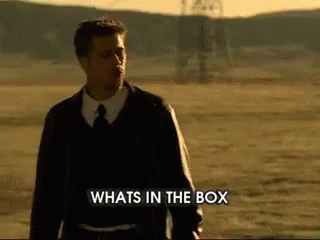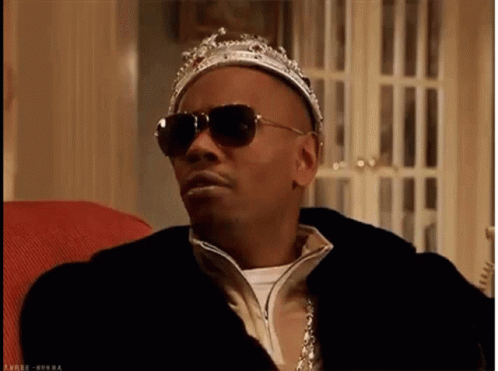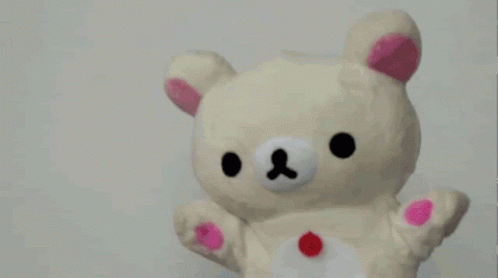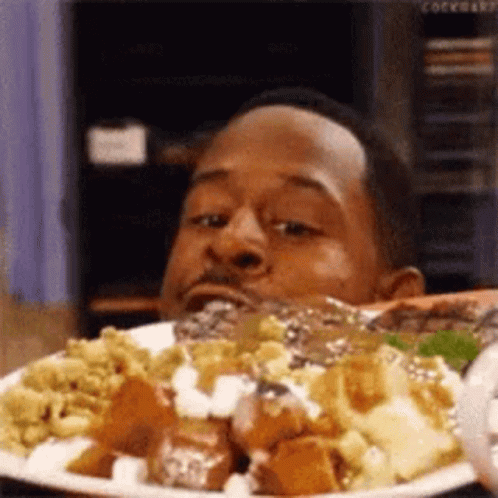The Seven D̶e̶a̶d̶l̶y̶ ̶S̶i̶n̶s̶ Nasty Emotions
What I find particularly compelling about the 7 deadly sins is that they are all based on emotions. In fact, I think that instead of calling them 'sins', they'd be better identified as 'nasty' (undesirable) feelings that have the potential to develop into harmful actions.

Welcome to July! It's crazy to think that we're already over halfway through the year. With it being Cancer season, I thought it would be appropriate to spend this month talking about our emotions and highlighting just how important emotional intelligence is in regards to healing and growth.
July being the seventh month reminded me of one of my favorite movies growing up. That movie, 'Se7en', is a psychological thriller (my favorite genre!) that tells the story of two detectives who are investigating a serial killer who has killed each of his victims based on one of the seven deadly sins. This movie, coupled with my upbringing in the Christian church, made the '7 deadly sins' an idea that has always taken up space in my mind. While I don't identify with being a Christian anymore, I do still feel there's a lot of wisdom surrounding the 7 deadly sins being common pitfalls for those of us who are interested in living alignment. And while I don't think that any of these 'sins' will necessarily lead to eternal damnation, over indulging in them can certainly lead us down a path where we hurt ourselves and probably others.

What I find particularly compelling about the 7 deadly sins is that they are all based on emotions. In fact, I think that instead of calling them 'sins', they'd be better identified as 'nasty' (undesirable) feelings that have the potential to develop into harmful actions. All action is preceded by feeling. Everything that we pursue physically, we pursue in order to create an emotional feeling. So I think it's fair to say that what is 'real' is not what is seen, heard, smelled, tasted, or touched, but rather, what is felt. With this awareness it becomes evident just how important it is to be aware of our emotions because it's the emotions that we are unaware of, the emotions we suppress and run away, that typically lead us to taking actions that have the potential to be deadly, figuratively, if not literally. So, to start our series on emotional intelligence, I want to highlight each of the 7 Deadly Sins, uncover the true feeling behind them, and give some insight on how acknowledging each of these emotions can help us process them before they manifest into harmful behaviors.
Pride

Pride is a tricky emotion. On one hand, having someone you admire tell you that they are proud of you is one of the best feelings in the world. On the other hand, pride has led many men to their untimely demise. Pride is what allegedly got 'the devil' kicked out of Heaven. As the story goes, 'the devil' was once an archangel named Lucifer who was particularly beautiful and talented. This beauty and talent eventually got to Lucifer's head, causing him to believe himself to be greater than God. He organized an army to rebel against and overtake God, was eventually defeated, and cast out of Heaven.
The way I see it, 'the devil' is a metaphor for an unbalanced ego—an ego that thinks it knows better and is capable of doing better than its Creator. Pride and ego are really synonymous when you think about it. An unbalanced ego can't help but be prideful because, from its perspective, it is the reason for all the good things in its life. Even if I say that I am proud of you, the reason for my pride is my relationship to you, and so, your achievement, in a roundabout way, feels like my achievement. The pride I feel really has less to do with what you've accomplished and more to do with how I feel about being in relation to someone who has achieved something great.
Pride also carries with it airs of superiority, self-importance, and invulnerability that are also ego-based. It's not uncommon to witness or hear about conflicts, often fatal, that are rooted in pride—the idea that I am better than you and I'm willing to hurt you to prove it. You can probably immediately think of members of your own family who aren't speaking because both are too prideful to be the first to admit that they are hurt, and that's the most dangerous part about pride—it keeps us separate. For there to be harmony, there must also be humility and an acceptance that we are greater as one than we could ever be divided.
I don't think it's wrong to feel pride about you or someone related to you doing great things, but the way to not let ourselves be overcome with the darker side of pride is to always remember that our individual greatness is a reflection of the greatness of the Universe, and that no one is blessed with anything for their own sake. Rather, we are gifted talents in order to serve the whole.
Greed

There's no such thing as a 'good' billionaire. In fact, I'd argue that in a humane society, billionaires wouldn't exist, at least not so long as there are millions of people who struggle to have their basic needs met on a daily basis. But billionaires do exist because there apparently is no limit to human greed.
The earth is an extremely abundant place. There's more than enough for everyone, so why doesn't everyone have enough? The answer is that many of us not only want but feel like we deserve way more than we need. And many of us are okay with others having less if it means that we can have more.
Greed is not just something that is tolerated but celebrated, with legions of people aspiring to be the next Jay-Z or Elon Musk. Those who have accumulated massive amounts of wealth are viewed as the best among us, and we are programmed, consciously or subconsciously, to aspire to be like them. Ironically, we all can't be billionaires because, in order to be a billionaire, you have to have exploited the value of the masses in some way, shape, or form.
You might think that the underlying emotion behind greed is ambition, but it's actually lack. Those who are constantly seeking more do so out of an often unconscious fear of scarcity. They have seen and internalized the possibility of going without and have committed to never allowing themselves to be in a position to experience it. Ironically, when one is obsessed with constantly acquiring more, one never has the capacity to experience what they already have and so finds themselves in a vicious cycle of constantly eating but never tasting. The true tragedy of greed is that it will bring you almost everything you've ever wanted, but it can never bring you enough.
The remedy for greed is gratitude. Lack exists more often in thought than it does in reality. If you're reading this, there has never been a moment where you didn't have enough to get you to the next moment. There probably have been many moments where you didn't have everything you wanted, but there's never been a moment where you didn't have everything you needed, or else you wouldn't be alive. So, to curb the undesirable feeling of lack, we have to acknowledge the difference between a want and a need and show gratitude for the fact, not the opinion, that to be alive means to have always gotten what we needed, which allows us the hope to work towards what we want.
Wrath

Anger is an emotion that needs to be felt and acknowledged but not necessarily expressed. Many people feel that anger is righteous and that we should feel free to express it in whatever way it manifests. I feel this is a dangerous idea because anger is blinding, and when we express it without first deeply processing it, wrath is often the result. Wrath is the outcome of wanting others to feel our anger, and I think this is evidence that anger is not righteous at all because if it were, we would not be so fixated on getting rid of it by making someone else feel it.
What separates anger and wrath is that wrath is about punishment. We feel anger, we don't like the anger that we feel, and so we want to punish whoever made us angry for causing us to feel a nasty emotion. So what wrath actually is, is a way to transmute a feeling in a manner that causes harm to another.
The way to overcome wrath is simple: first, acknowledge our anger without judging ourselves for feeling it, and then find a way to transmute our anger in a way that doesn't hurt those around us. This could be through yoga, boxing, running, sports, or some other kind of movement. It could also be through writing, playing video games, going to therapy, or taking a nap. There are countless ways to transmute anger before it becomes wrath, but the most important step in the process is first having the self-awareness to acknowledge when we feel angry and the emotional maturity to not want to project the fruits of that anger onto someone else—whether they deserve it or not.
Envy

The artist formerly known as 'Puff Daddy' has an intro on the Notorious B.I.G's classic song 'My Downfall' in which he says, 'Jealousy's a motherfucker, you weak jealous motherfuckers! If you a jealous motherfucker, you just a weak motherfucker!' Which is incredibly ironic given that we've recently found out that Puff Daddy allegedly was so jealous that his ex-girlfriend at time was dating Kid Cudi that he had his car blown up in attempt to intimidate him.
I agree with Puff that jealousy is an emotion that is birthed from weakness, but the weakness is not in feeling jealousy but rather in the lack of awareness to acknowledge that you are jealous and why you're jealous. In my opinion, the feeling that jealousy is rooted in is admiration—either of the person you feel jealous of or of what that person has. This makes it clear that what jealousy is actually about is not necessarily wanting what someone has physically, but rather wanting the sense of security you believe that having what someone else has will bring you.
Jealousy is only weak when we lack the courage to acknowledge that we have insecurities and that those insecurities make it impossible for us to admit to ourselves that we admire qualities in someone else. It is when we repress and ignore these feelings of admiration that they transform into envy and bring with them actions that are harmful toward those we actually admire.
Feeling jealousy is normal and natural, and in my opinion, being able to acknowledge that you are jealous requires an incredible amount of self-awareness and inner strength. As long as we are strong enough to see jealousy within ourselves and acknowledge the fact that it's birthed from insecurity, we will then be strong enough to deal with the insecurities that lie at the roots of our jealousy instead of allowing the undesirable feeling of envy to manifest itself in a way that is malicious.
Lust

Lust is often thought to be about sex, but lust isn't about sex; it's about desire. Namely, the desire to never feel pain. The pursuit of pleasure seems like a very normal thing and, to be honest, if we're defining 'normal' as something the average person does, then pursuing pleasure is extremely normal. What the average person doesn't realize, though, is that the constant pursuit of pleasure is rooted in the avoidance of pain.
If you're a regular reader of this newsletter, then you know that I am a fan of pain because the acknowledgment of pain is the first step in the healing process. Life is a traumatic experience for us all, which means that wounds, pain, and healing are things that we all should be interested in, and therein lies the issue with lust. What makes lust so dangerous is not that pleasure is inherently bad, but that when we are always pursuing and engaging in acts of pleasure, we never have the opportunity to feel pain, which means we never have the opportunity to acknowledge our wounds, which means we never have the opportunity to heal.
I can say from firsthand experience that when we don't heal our wounds, specifically those from childhood, we will subconsciously project that pain through our behaviors toward others. The lustful spirit I used to carry was a direct result of looking for the desire I wanted and didn't get from my parents in women, which dehumanized those women and instead made them objects of my pleasure. What has delivered me out of that lustful spirit was acknowledging all the pain I'd been carrying and choosing to intentionally heal it instead of simply using pleasure, in whatever form, to distract myself from it.
Gluttony

I think that most people would assume that the predominant feeling inside a glutton would be desire, but I actually think it's emptiness or, rather, the lack of feeling full. Similar to greed, gluttony is the result of not knowing and not caring to know what it feels like to have enough. The difference between greed and gluttony is that greed often results in you hurting another, but gluttony often results in you hurting yourself.
Believe it or not, I used to be quite the overeater, to the extent that it was a running joke in my family growing up about how I ate so much yet remained so skinny. My favorite holiday was always Thanksgiving, not because it gave me the opportunity to be around family and show gratitude for what we had, but because I could eat as much as I wanted to without being made to feel bad for it. Ironically, eating as much as I wanted to often left me feeling bad anyway because, it turns out, consuming way more than you need often leads to a bad time. So on many Thanksgivings growing up, after my third plate or so, you would often find me sprawled out on the floor holding my stomach, miserable from eating myself sick.
That's the lesson gluttony aims to teach us—that just because we can have more doesn't mean that we should have more or that having more will be good for us. Having just enough is way more conducive to peace and equanimity than having more just for the sake of having more.
Sloth

Growing up, I was called 'lazy' more times than I can count, primarily because I didn't want to clean my room or do other chores that were assigned to me. But to be honest, I wasn't as lazy as I was disinterested, and I think that's what people misunderstand about laziness. Sloth seldom has to do with not wanting to expend energy but rather it is rooted in a disinterest in doing whatever it is that needs to be done. When we're motivated, inspired, or interested in something, laziness is never an issue because there is always energy available to engage in that thing. But when something seems boring, useless, or uninteresting, we are hard-pressed to find the energy to do it.
This is because what causes sloth is not laziness itself but, instead, apathy. Apathy is a feeling I know very well. It was the biggest obstacle to me starting to write again. Not only did I feel disinterested in writing, I felt disinterested in the world as a whole and everything in it and, as such, could not find the first fuck to give in regards to contributing to it. This was in part due to me looking out into the world and seeing a shitshow that wasn't worth contributing to, or at least that's how it seemed on the surface. On a deeper level, I discovered that my apathy was rooted in hidden feelings of unworthiness—that it didn't matter what I did because nobody cared anyway and it wouldn't make a bit of difference.
That being said, the way to cure apathy and the sloth that comes as a result of it is to reconnect with your 'why.' For me, reconnecting with that 'why' came first through recognizing that I felt unworthy because of what people around me had told me about myself growing up and realizing that just because they said it doesn't mean that it's true. Through releasing those beliefs about myself that I inherited and embracing the value that I know exists in what I have to share, reinforced by the opinions of people I respect, I discovered a newfound sense of purpose that is primarily based on doing the work I feel called to do simply because I feel called to do it and is secondarily based on the potential that the work I am called to do may very well help or support someone else in their own work. What keeps the apathy away is internalizing that what I have to share is worthy of being shared and that you are worthy of the energy it takes to share it.
The Deadliest Sin
The only real 'sin' there is is not knowing who you are. Or rather not knowing who you are is the root of all sin. Which is why it is critical to get to know ourselves, not only on a spiritual level, but also on a human level. A common pitfall on the spiritual path is realizing our truest identity as a soul and using that awareness to bypass all the pain and trauma associated with our identities as humans. This is why we often see so called 'spiritual' people doing awful things — because they refuse to acknowledge the nasty emotions that we all experience and in doing so have forced those nasty emotions to express themselves in harmful ways. But we have to remember that just because an emotion undesirable, that does not give us a pass to ignore it and if we're really interested in doing the work to heal and grow in the highest expressions of ourselves then we must often bravely confront the lowest, nastiest emotions that we feel.
FYI + What's Going On With Me
I've decided to discontinue the 'Growth Challenges' section of the newsletter because I haven't received any direct feedback about it being useful and I recognize that getting through these newsletters is probably challenging enough. I really want to branch out into creating other forms of content soon which means freeing up some mental bandwidth and a part of that will be through consistently making these newsletters more concise and focused so that I don't sink so much time into them.
As for me, I'm making it. I'm still in this liminal space where I feel like I'm being catapulted into some new way of being but am still not all the way out of how I have been. For example, for most of my adult life, sex has been extremely important to me. Not just sex but women and specifically my ability to please women has been a cornerstone of my identity — both within and without relationships. And that part of my identity just doesn't exist anymore. I currently have absolutely no interest in casual sex but I also don't want to pursue a relationship primarily for sex. It's a bit of an issue because I get along better with and generally prefer the company of women. And while I'm fine with having platonic relationships with women, most women that I meet at this big age aren't interested in having a platonic relationship. Plus many of the women I meet are already in a romantic relationship which means their partner would likely not be cool with them having a close friendship with another man. This is just one of many ways I feel like I'm transitioning and while I know that eventually everything will balance out, I'm often left feeling dangling in my day to day life. Nonetheless I'm going to do my best to stay present with what's happening so that I can fully digest the lessons that this period is trying to teach me. What I know for sure is that I am evolving — I feel so different from who I was even 6 weeks ago.
I hope this newsletter has shown you that no emotion is inherently sinful and that what actually leads to sin is the refusal to acknowledge our truest emotions.
To all my fellow Cancerians, Happy Birthday! And whether you're a Cancerian or not, I hope the rest of this summer gifts you with emotional fulfillment.
With love,
Micheal Sinclair 💜
